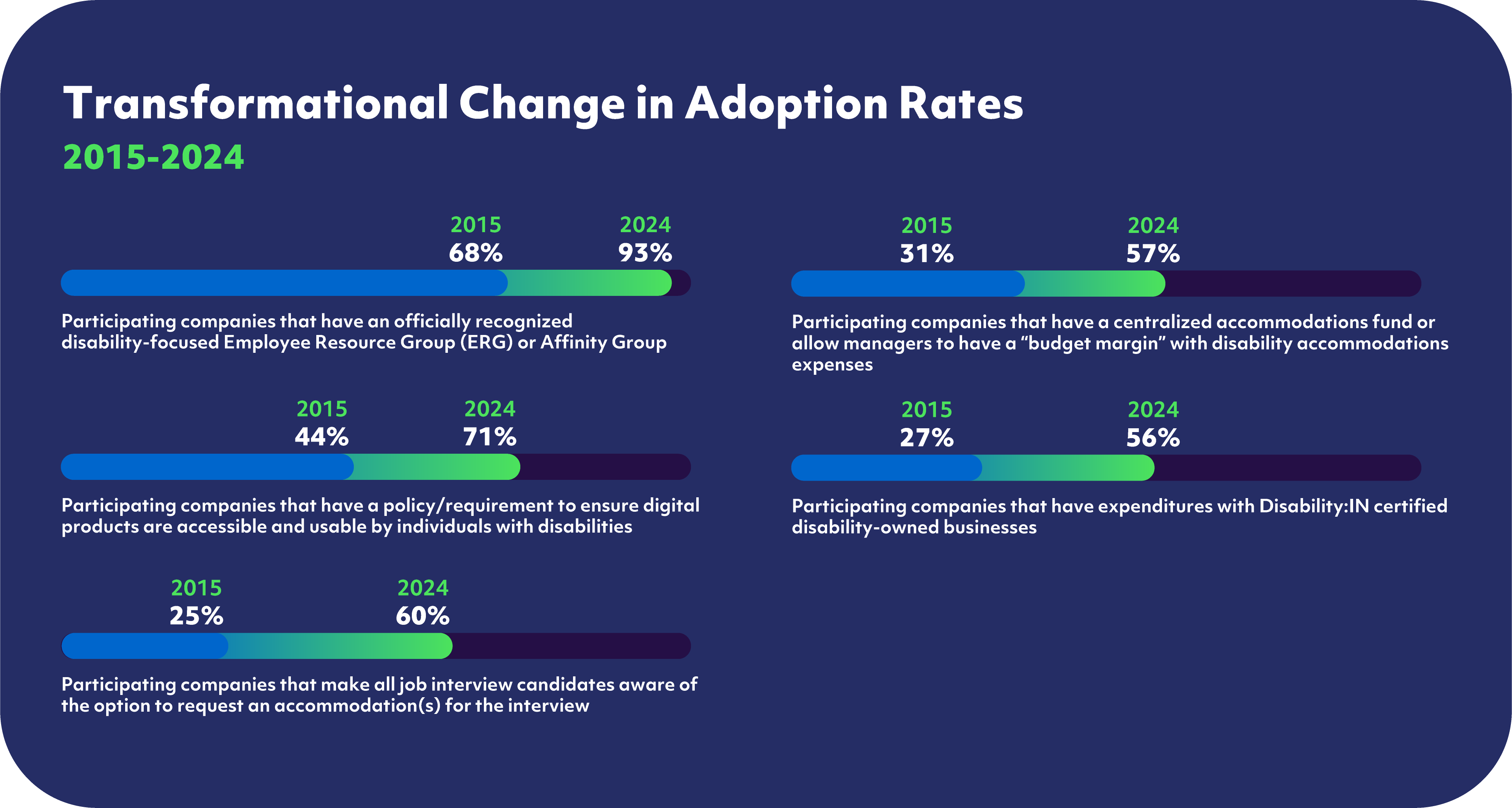
The Evolution of the Benchmarking Tool
Initially established in the U.S., the Disability Index was internationalized in 2024 by adding Brazil, Canada, Germany, India, Japan, the Philippines, and the United Kingdom. This shift was driven by demand from multinational companies aiming to enhance disability inclusion across their global markets. With almost tenfold participation growth over a decade, the benchmark has proven to be a valid and reliable tool, offering valuable insights for sustainable progress and aligning with leading experts. The internationalization of the Disability Index speaks to past success and emerging opportunities:
- Past Success: Incremental and Transformational Change over the Past Ten Years. While most of the growth driven by the Disability Index has unfolded incrementally over the past decade, there have been bursts of transformational change in high leverage practice areas like disability-focused Employee Resource Groups (ERGs), accessibility requirements, recruiting, accommodations, and sourcing from disability-owned businesses.
- Emerging Opportunity: Modernized Regulations. Forthcoming enforcement of legislation like the Corporate Sustainability Reporting Directive (CSRD) and European Accessibility Act (EAA) will make disability reporting a material issue for more than 50,000 employers upon its full implementation. Regional legislation such as the Accessible Canada Act and the European Accessibility Act are outlining clear compliance mandates that companies operating in certain jurisdictions must be prepared to follow.
Together, these factors constitute a dynamic and rapidly evolving landscape that shapes both individual and institutional attitudes, as well as actions related to measurable corporate disability inclusion practices that can be extrapolated from the data reported throughout the subsequent pages.

Transformational Change in Adoption Rates from 2015-2024
- Participating companies that have an officially recognized disability-focused Employee Resource Group (ERG) or Affinity Group increased from 68% in 2015 to 93% in 2024.
- Participating companies that have a policy/requirement to ensure digital products are accessible and usable by individuals with disabilities increased from 44% in 2015 to 71% in 2024.
- Participating companies that make all job interview candidates aware of the option to request an accommodation(s) for the interview increased from 25% in 2015 to 60% in 2024.
- Participating companies that have a centralized accommodations fund or allow managers to have a “budget margin” with disability accommodations expenses increased from 31% in 2015 to 57% in 2024.
- Participating companies that have expenditures with Disability:IN certified disability-owned businesses increased from 27% in 2015 to 56% in 2024.
